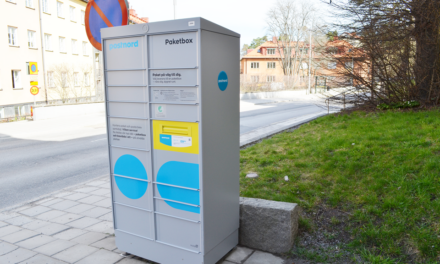
ITU, India and UPU partnership helps Bhutan bridge the digital divide
The Government of India, in partnership with two UN agencies, the International Telecommunication Union (ITU) and the Universal Postal Union (UPU), will help boost the delivery of e-post services to citizens in the least accessible parts of its south Asian neighbour, Bhutan with a package of equipment, satellite capacity and training resources worth some USD 450,000. The resulting e-post service will allow people without computers in remote areas to send e-mail between post offices for printing and delivery.
India will help Bhutan's E-Shabtog* venture by providing instant connectivity to six more remote post offices that are not connected by the national fixed telecommunication network. Two of the stations, Laya and Lunana, are located over 5,000 metres above sea level, are snowbound for 8 months of the year, lack of electricity and paved roads and are a 5-8 day walk from the nearest road. To support the provision of voice and low to medium-speed data services to the six locations, India will provide free of charge through its Department of Telecommunication:
— Six VSAT terminals in remote areas with a hub in Thimpu.
— Solar energy sources with about eight days' autonomy
— Access/transponder capacity on INSAT system free for the duration of the project
— Training and maintenance
The E-Shabtog project seeks to create a network of telekiosks in 38 post offices throughout Bhutan for affordable and practical access to email. Letters normally take 5 to 8 days to be delivered by postal runners between remote mountain districts. E-mailing letters cuts home delivery time to 1 night. The long-term goal is to make the post office a one-stop shop that will deliver a wide range of e-services such as bill payment, government information, and commerce. To date, 17 post offices in Bhutan have been equipped for e-post. By the end of 2004, it is planned that 38 post offices, or one-third of all post offices in the country, will be e-service ready.
ITU, which evolved the project on the model implemented in Andhra Pradesh, India, will provide expertise and short-term training. The Universal Postal Union will provide equipment for the post offices and facilitate field visits for Bhutan Post personnel for studying the implementation of e-post in southern India. Both UN agencies will evaluate the benefits and share information.
In addition, an Indian private sector company, Encore Software, is offering low-cost hand-held devices called Simputers, which will enable Bhutanese postmen to deliver mail, as well as health workers and agricultural workers to transmit information as text, voice or images. Specialized software is being developed ranging from simple book-keeping to e-post and health and agriculture applications.
The Bhutanese government, which is responsible for all logistical support, transport, civil works and regulatory and legal clearances, will exempt all the equipment imported for this project from customs, excise and other duties and levies. "India has been our main development partner over four decades. Their assistance in this project will help us in establishing connectivity to the most remote and peripheral areas of our country. We appreciate the initiatives of ITU and the UPU in the materialization of this project, which will undoubtedly enhance the socio-economic development of our rural people," said Dasho Tashi Phuntsog, Secretary of the Ministry of Information and Communication of Bhutan.
"The New India has built up one of the world's largest domestic satellite communication systems and now stands ready to share the fruits of its success with Bhutan," said Arun Shourie, India's minister of communications and information technology. "All of us are delighted that INSAT will be instrumental in providing access for the first time to pockets of population in the remotest parts of Bhutan."
"Establishing telecommunication connectivity is crucial to extending e-post and other public services to remote and inaccessible areas," said Hamadoun Toure, director of ITU's Telecommunication Development Bureau. "I am very pleased that the government of India has accepted the invitation of ITU and UPU to assist Bhutan in this process by providing valuable technology, expertise and resources."
"With approximately 660 000 postal outlets worldwide, the postal service has a communicative presence in the daily lives of people. The Bhutan example that enables people without their own computers to send e-mails from one post office to another where it is printed and delivered to the home address, cutting several days in delivery time, illustrates the relevance of the postal service in the information age," says UPU Director General, Thomas E. Leavey.












